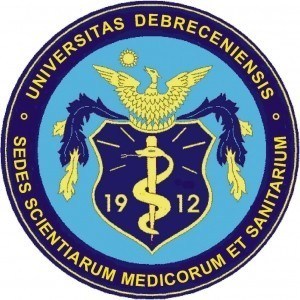Photos of university / #pennstate
The Nuclear Engineering program at The Pennsylvania State University offers students comprehensive education and hands-on training in the principles and applications of nuclear science and engineering. This program is designed to prepare students for careers in the nuclear industry, research institutions, government agencies, and related fields. The curriculum covers a wide range of topics including nuclear reactor theory and design, radiation protection, nuclear fuel cycle, thermodynamics, heat transfer, and materials for nuclear applications. Students will gain a solid foundation in physics, mathematics, and engineering principles, along with specialized coursework in nuclear safety, instrumentation, and control systems.
The program emphasizes both theoretical understanding and practical skills, providing students with opportunities to engage in laboratory experiments, simulations, and research projects. State-of-the-art facilities and laboratories enable students to work on real-world problems related to nuclear reactor operation, radiation shielding, and nuclear waste management. The program also incorporates instruction in the economic, environmental, and regulatory aspects of nuclear technology, preparing graduates to address complex challenges in the field.
Students have access to interdisciplinary collaboration, joining faculty and peers across engineering, science, and policy disciplines, fostering innovative solutions and approaches to nuclear engineering challenges. The program supports internships and cooperative education experiences with leading industry partners and government agencies, enhancing students' professional development and employment prospects. Graduates of the program are well-equipped to pursue advanced degrees or to enter the workforce as nuclear engineers, reactor operators, health physicists, or regulatory specialists. With a strong focus on safety, sustainability, and innovation, the Nuclear Engineering program at Penn State is committed to developing skilled professionals who will shape the future of nuclear technology.
| Course Nbr | Course Title | Typically Offered |
|---|---|---|
|
299 |
Foreign Studies |
Spring Only |
|
301 |
Fundamentals of Reactor Physics |
Fall Only |
|
302 |
Introduction to Reactor Design |
Spring Only |
|
309 |
Analytical Techniques for Nuclear Concept |
Fall Only |
|
310 |
Issues in Nuclear Engineering |
|
|
399 |
Foreign Studies |
Spring Only |
|
401 |
Introduction to Nuclear Engineering |
Fall Only |
|
401 |
Introduction to Nuclear Engineering |
Spring Only |
|
403 |
Advanced Reactor Design |
All Semesters |
|
403 |
Advanced Reactor Design |
Summer & Fall |
|
403H |
Advanced Reactor Design |
Fall Only |
|
405 |
Nuclear and Radiochemistry |
Fall Only |
|
406 |
Introduction to Statistical Thermodynamics |
|
|
406 |
Introduction to Statistical Thermodynamics |
Spring Only |
|
409 |
Nuclear Materials |
Spring Only |
|
420 |
Radiological Safety |
Fall & Spring |
|
428 |
Radioactive Waste Control |
Spring Only |
|
430 |
Design Principles of Reactor Systems |
Summer & Fall |
|
431 |
Nuclear Reactor Core Design Synthesis |
|
|
441 |
Nuclear Security Threat Analysis and Assessments |
|
|
442 |
Nuclear Security System Design |
|
|
450 |
Radiation Detection and Measurement |
Spring Only |
|
451 |
Experiments in Reactor Physics |
Fall Only |
|
470 |
Power Plant Simulation |
Fall Only |
|
494 |
Senior Thesis |
|
|
496 |
Independent studies |
All Semesters |
- Secondary School Records
- Post-Secondary School Records
- TOEFL: A minimum TOEFL score of 80 on the Internet-based TOEFL or 550 on the paper exam (code #2660)
- IELTS: A minimum IELTS score of 6.5 on the academic test
- Penn State requires first-year international students to submit an official score from the SAT or ACT examination.Please note: The writing component of standardized tests (SAT or ACT) is not required. The writing component will not be used as part of our evaluation. If your test scores include the writing component, by all means, have those scores sent to Penn State. Additionally, we do not require SAT Subject Tests.
The Pennsylvania State University offers comprehensive financing options for students enrolled in its Nuclear Engineering undergraduate and graduate programs. Tuition fees vary depending on the residency status of the student, with in-state students benefiting from lower tuition rates compared to out-of-state students. For undergraduate students, the estimated tuition cost ranges from approximately $18,450 per year for in-state students to about $36,490 per year for out-of-state students. Graduate students may pay slightly different tuition rates, which are also influenced by residency status and the specific graduate program.
To support students financially, the university provides a variety of scholarship opportunities, including merit-based scholarships, departmental awards, and need-based grants. Many Nuclear Engineering students are eligible for departmental scholarships awarded based on academic excellence and research potential, which can significantly reduce the financial burden. Additionally, students are encouraged to apply for federal and state financial aid programs, such as the Free Application for Federal Student Aid (FAFSA), which can provide grants, loans, and work-study opportunities.
Graduate students often have the option to receive funding through research assistantships, teaching assistantships, or fellowships. These assistantship positions typically cover tuition expenses and provide a stipend for living expenses, thus enabling students to pursue their degrees without substantial financial strain. The university also collaborates with industry partners and government agencies to offer specialized scholarships and grants for students involved in nuclear research and related fields.
Furthermore, Penn State promotes financial planning resources, including counseling and workshops on student financing, to help students manage their educational expenses effectively. It is recommended that students explore all available financial aid options early in their academic journey to ensure optimal support throughout their studies. Overall, Penn State provides a well-rounded financial support system designed to make Nuclear Engineering education accessible and affordable for qualified students.
The Pennsylvania State University offers a comprehensive Nuclear Engineering undergraduate program designed to prepare students for careers in the nuclear industry, research, and academia. The program emphasizes a strong foundation in engineering principles, nuclear physics, radiation protection, reactor theory, thermodynamics, and materials science. Students gain practical experience through laboratory work, design projects, and internships that provide real-world skills essential for working safely and efficiently with nuclear systems.
The curriculum includes courses in nuclear reactor physics, thermal-hydraulics, radiation detection, nuclear materials, and nuclear safety. Specializations and electives allow students to tailor their education toward areas such as nuclear power plant design, radiation shielding, nuclear fuel cycle, and nuclear policy. The program also integrates emerging topics like advancements in nuclear reactor technology, including small modular reactors (SMRs) and accelerator-driven systems, preparing students to contribute to the future of nuclear energy.
Research opportunities are abundant within Penn State’s Radiation Science and Engineering Center (RSEC), where students can participate in cutting-edge projects related to reactor safety, waste management, and innovative nuclear technologies. The program is accredited by ABET, ensuring that the curriculum meets rigorous industry standards and prepares students for professional engineering licensure.
Graduates of the Nuclear Engineering program at Penn State are well-positioned to pursue employment at nuclear power plants, government agencies such as the Department of Energy, private sector companies involved in nuclear technology, or graduate studies in engineering or nuclear science. The university’s strong alumni network and partnerships with industry leaders provide students with valuable internship and employment opportunities.
The university fosters a collaborative learning environment with state-of-the-art facilities, including laboratory spaces equipped with modern instrumentation for nuclear measurements and reactor simulation tools. The faculty members are experts in their fields, often involved in national and international research initiatives, ensuring that students receive education aligned with current industry practices and innovations.
Penn State’s nuclear engineering program also emphasizes safety, environmental stewardship, and ethical considerations in the development and application of nuclear technologies. Students are encouraged to engage in interdisciplinary projects that address issues such as nuclear safety culture and sustainability in energy production.
Overall, Penn State’s Nuclear Engineering undergraduate program offers a rigorous, comprehensive education designed to equip students with the technical knowledge, practical skills, and professional competencies necessary to excel in the dynamic field of nuclear science and engineering.









